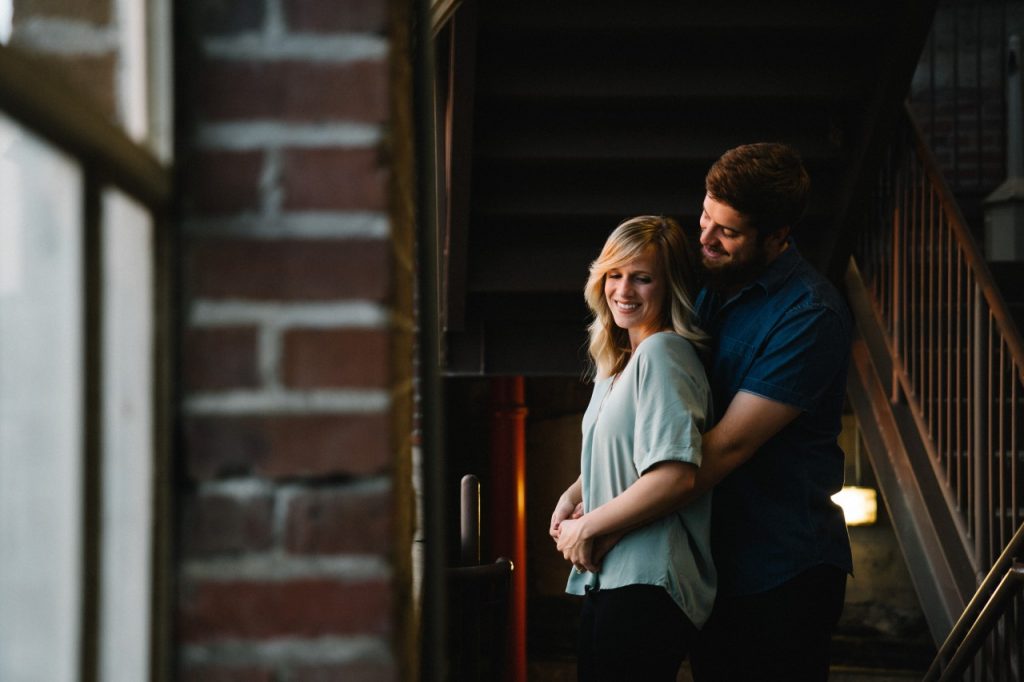Dan didn’t go to India to find a wife. He went to serve at a small Christian hostel that housed children going to school away from home. For many of them, he was the first American they had ever seen.
Dan didn’t know he had met his wife. He just knew that this mischievous teenager was not blinded by the fact that he had come from a rich country. Pari seemed to genuinely care about him, not because of what he could do for her, but for who he was. During the year he spent in India, they had plenty of time to see one another in action. Dan noticed qualities of integrity and kindness in Pari. In him, she saw kindness, compassion, and stability.
After his return to the States, Dan continued to take a fatherly interest in his young friend. She was, after all, 13 years his junior. But as time went on, Pari began noticing a difference in his letters: at first he jokingly called her “daughter.” Now he was calling her “darling.”
When Dan woke up to the fact that his love for Pari was changing and deepening, he set himself the task of discerning how he loved her, and whether she would be at home in the United States. For a year, he prayed earnestly, taking time to talk it over with his mother, and with a couple of trusted pastors. But once he clearly knew that this was what God wanted, he had no more doubts about marrying her.
The next step was to buy a plane ticket to India.
In a country where arranged marriages are the norm and where a love match can mean the couple is disowned, he had a delicate task. Though Pari’s father was an unusually kind, God-fearing man, Dan still wanted to discern her true feelings before he talked to her parents. So his first stop was Pari’s school, where he could talk to her face-to-face.
Pari was puzzled. Of course, she loved him, but how could he possibly be interested in her? I’m not beautiful, she thought. And anyway, how will his family react to a woman with a different skin color? So she said “No.”
Fortunately, Dan stuck around. The next day, Pari voiced her concerns aloud. “What will your mother and sisters say?” she asked.
“They will be happy!” he replied enthusiastically.
“OK,” she said. And that was that.
But Dan wanted to hear the words “Yes, I will marry you.” So the next day, he asked her again, and this time they were formally engaged – as formally as they could be, that is, until he spoke to her father.
Thankfully, Pari’s father already respected Dan from his previous visits to India. But her brothers were worried about prejudice in America, and the decision continued to hang in the balance. Finally, Pari went to her older sister, and said, “I want to marry this man, or I will never marry anyone.” When this news reached her father, he agreed at last.
But they still had a long wait ahead: Together, Dan and Pari decided to put off the wedding until she had completed college. For the next three years, she studied Bible in India, he designed dams in America, and they wrote many, many letters. By the time they did marry, they had known each other for seven years. He was 34, and she was 21.
Nine years and four children later, Dan and Pari’s home is filled with books, hospitality and laughter.
For Pari, being married to someone older, someone who is not having the same struggles in life, is an advantage. Since Dan has already learned the lessons she is working on, he is able to help her see who God truly is. She appreciates the fact that he’s not at an age to be overly interested in material things, and that he has practical skills that enable him to reach out to others. He is secure in his work, in his mind, and in God.
Do they face any unique challenges as a couple with an age gap? Yes, differing spiritual and emotional maturity levels do sometimes require patience, but when you’re older, Dan says, you can do that. If he had gone into it hastily, he could see himself wondering when he ran into the normal difficulties of married life. But he knew Pari very well, and he knew what God wanted.
What advice would they give someone who is considering marrying someone significantly older or younger? Dan and Pari both feel that one of the keys is to observe, watch, and know the inner person before revealing too many feelings. Once your emotions kick in, you have difficulty seeing who the person truly is. But if you know them truly, you don’t have to be worried.
At 42, Dennis was still single. He had already spent eight years watching his twin brother Dan enjoy the benefits of wife and family, while his own situation remained unchanged. This was the verse to which he clung: “The vision is for the appointed time. Though it tarry, wait for it, for it is sure to come.”
At 28, Kristi figured there was nobody out there for her. But at the same time that she was mentally releasing her hopes for one particular suitor, she began to feel deep in her heart that something else was just around the corner. Her prayers for a husband increased; so did her peace of mind.
Dennis, too, began to sense that something was about to happen in his love life. Boldly, he prayed, “It’s up to You, God. You decide.”
Meanwhile, God had been doing background work that neither of them knew about at the time. It was, Dennis says, a conspiracy between Him and other people.
“Who is Dennis going to marry?” Kristi casually wondered aloud to her cousin, Penny one day.
“How about you?” Penny replied.
Dennis lived on the east coast of the United States; Kristi lived on the west coast. For most of their lives, they had known each other from a distance, and their impressions of each other, though positive, were few. Once, she visited his church (she was the singer; he was the sound man). Once, they shared a basketball game (she broke her finger; he was the paramedic).
Now, as they made their way to the same Christian convention they had attended many times before, Dennis told himself, “I am not here to look for a wife.” He was there to serve. But even with that mindset, God began to increase his attraction to Kristi. He saw her femininity and her steadiness: When he talked to her, she was nice every time. He saw her godliness, her kindness to others, and her beauty, and it was evident to him that she had a beautiful heart, as well.
Kristi was initially aware of Dennis’s striking blue eyes, his warm personality and his character. It was obvious that he loved the Lord, and loved people. A gentleman, he was very considerate of her as a young lady, but kind to everybody else too. After a warm, impromptu conversation one evening, she couldn’t help wondering if Dennis was interested in her. “I told the Lord my thoughts and asked that if Dennis was part of His plan for me, he would make contact soon.”
Mindful of Indian custom, Dennis had already told his sister-in-law Pari that she could pick a wife for him: Though only half serious, he had known that his emotions might be better left out of the mix. Now Pari urged Dennis to talk with Kristi’s dad. Recognizing God’s influence on her counsel, Dennis decided to write a letter. His brother Dan also got involved, giving counsel on what to include in the letter, and periodically asking, “What have you written now?” or “Have you sent it yet?”
Dennis sent it.
When the letter arrived, Kristi remembered her prayer of just a few weeks before, and felt deeply peaceful. She and her parents spent a week of intense discussion and prayer before the couple began daily correspondence.
Pretty soon, Dennis says, he knew that this was the girl he wanted to marry. She had everything he wanted: She shared the same vision of life. Though not instantly head over heels, Kristi felt a growing affection and respect for him, and a desire to continue this new friendship.
As it turned out, friendship quickly grew into love. “We discovered how much our hearts were in tune and how much we shared as far as goals, aspirations, and interests.” She had hoped for a man who could pursue and win her, someone to whom she could freely give her heart. When it finally happened, it was a whirlwind ride. With the head start of a common background, and the confidence of life-long acquaintance between their families, they waited just six months for the wedding.
In the first 16 months of their marriage, one of Dennis and Kristi’s biggest differences has not been age, but birth order, family backgrounds, and their resulting attitudes about money. He is one of nine children; she is the youngest of three. Compared to Kristi at the opposite end of the X generation, Dennis grew up with very low expectations: He often wore hand-me-downs, for instance, and going out to McDonald’s was a rare treat. Even as an adult with a well-paying job, his ability to be satisfied with little is very high.
They have had to realize where the other is coming from, modify where needed, and be accepting where needed. For instance, since marrying Kristi, Dennis has learned to go out to eat more. Rather than thinking, “This is such a waste,” he tells himself, “No, I love my wife. She likes going out to Olive Garden. That’s OK.”
Dennis and Kristi did, of course, have to come to terms with the 14-year age gap. In fact, one of the first questions Kristi asked herself was, “Is that too old?” She hadn’t considered Dennis before because he seemed like he was part of an older generation, but he proved to be a very young-at-heart 42. “I never thought I’d be marrying someone 14 years older,” she says, “but I know I got a man who loves God first and loves me more than I deserve.”
Dennis hadn’t planned to look for a wife so young, but in the end he decided that “it’s more about maturity than age.” He had other preconceptions to work through as well. While courting the very cosmopolitan Kristi, he thought, “I’ll never go hiking or camping again.”
Her response? “He found out I was more fun than he thought I was!”
“One reason not to immediately reject people,” says Dennis: “They may be a lot deeper than you perceive them to be.”
The bottom line? When God is your matchmaker, there’s no need to mind the gap.
PART 2: [Don’t] Mind the Gap »
Copyright 2009 Elisabeth Adams. All rights reserved.










